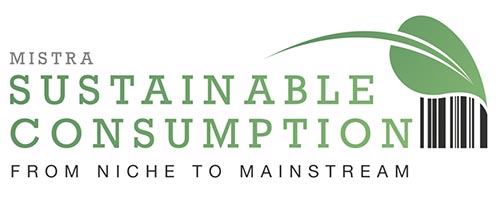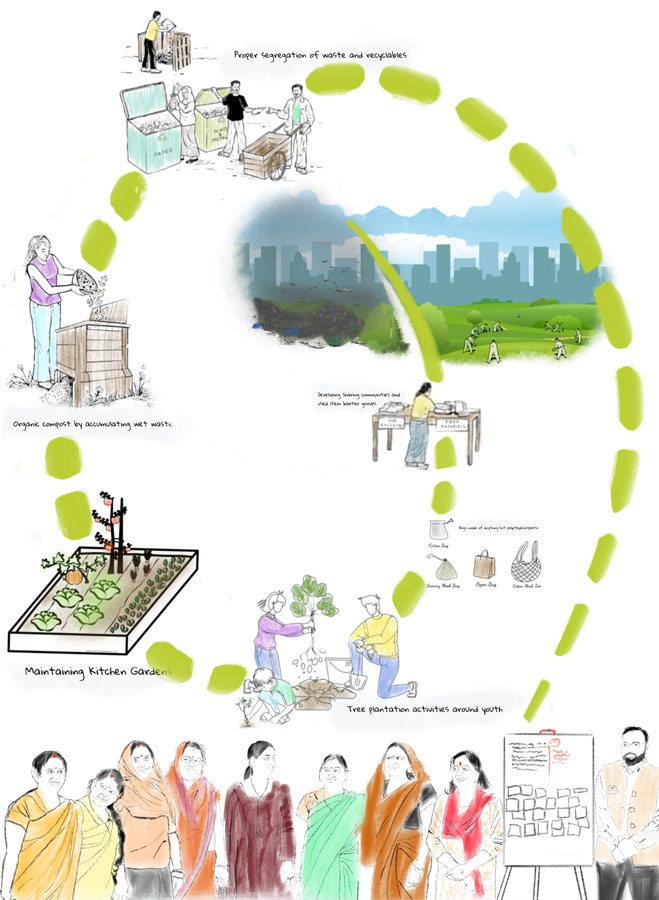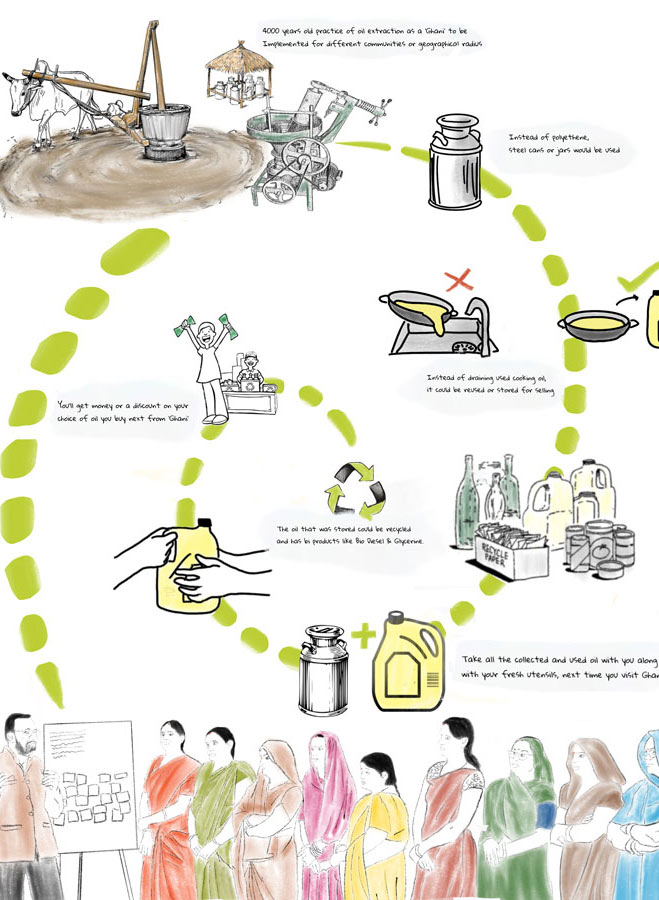Vision 2030
Consumer Action Research and Training (CUTS), India

These ideas stem from the grassroots, making them more practical. There will be greater support and collaboration from the community when the ideas originate from them.”
Srajan Mishra, Artist
The Vision
The vision is a future where Jaipur city is free from dumping yards and littered waste and waste management practices are transformed, promoting a cleaner and healthier environment for all residents. The vision is to revolutionise dietary habits by advocating for the widespread adoption of non-chemically refined edible oils, promoting better health outcomes and reducing chemical usage in food items. Central to the idea is community engagement, recognising grassroots ideas as essential drivers of change. Through collaboration and shared determination, the vision aspires to build a future where Jaipur serves as a beacon of sustainability and well-being for generations to come.
About CUTS
CUTS, established in 1983, works to support consumers around the world, particularly the most vulnerable, to achieve rights related to basic needs, sustainable development and good governance. In all its endeavours, CUTS follows the method of research-based advocacy and connects the grassroots with national and international policymaking processes. It works at multiple levels (from grassroots campaigns to interaction in international policy discussions) to meet its goals and objectives.
2023 Campaign
In India, plastic waste and unsustainable consumption threaten the environment. CUT’s campaign focused on making the ‘best out of waste,’ providing training on recycling, reusing single-use plastic and other waste. It engaged with the community on waste issues, offering training on developing kitchen gardens at home and converting wet waste into organic manure. Through orientation workshops and a local platform, CUTS continues to promote the use of reusable bags and alternatives to plastic products.


